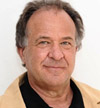Developing Countries’ Appetite Supports Gold
 TENSION between Russia and Ukraine as well as escalating violence in the Middle East have helped support the price of gold this week as it is often regarded as an insurance against financial and political risk.
TENSION between Russia and Ukraine as well as escalating violence in the Middle East have helped support the price of gold this week as it is often regarded as an insurance against financial and political risk.
There are also signs of support from developing countries.
Russia, one of the world’s biggest holders of gold, increased its official reserves by nearly 340,000 troy ounces in July, to 35.5-million ounces, according to data from the International Monetary Fund (IMF). The amount of gold now held by Russia is the most since at least 1993.
Kazakhstan’s central bank added 45,000 ounces of gold to its reserves in July, to 5.1-million ounces.
The IMF said the central bank of Ecuador also increased its reserves in July, by 10,000 ounces, while Belarus cut its holdings by 79,000 ounces.
Turkey’s central bank reported a decline of nearly 138,000 ounces to the IMF, dropping its official reserves to 16.4-million ounces.
There has been a re-emergence of some physical buying from jewellers in Asia, which pushed premiums for gold bars in Hong Kong to 70c-$1.10 above the London spot prices, higher than the 50c-$1 quoted late last week. In Singapore, premiums were steady at 80c-$1 an ounce to spot London prices.
Reuters reported that the Shanghai Gold Exchange (SGE) had received a much better than expected response to its new gold exchange due to begin in September. Although the SGE targeted 30 companies for the first round of membership, 40, including many foreign banks, had already signed up.
The strong response from foreign players will boost efforts by China — the world’s biggest producer of gold — to gain pricing power over the metal and to challenge the dominance of London and New York in trading.
The bourse is set to begin operations on September 29 in the Shanghai free-trade zone, with three yuan-denominated physical gold contracts, of 100g, 1kg and the bigger London gold delivery bar weighing 12.5kg.
Allowing foreign players to trade yuan-denominated bullion contracts — without the need to exchange into US dollars — would give the Chinese currency more international exposure, while also drawing in demand for gold in offshore yuan. Trading offshore yuan is currently restricted to certain international financial centres such as Hong Kong, Singapore and London.
China and other Asian gold trading centres such as Singapore are seeking control over pricing of the precious metal as they seek alternatives to the so-called London fix, the global benchmark, which is being investigated by regulators on suspicion that it may have been manipulated.
While the price of silver continues to languish, during May India imported 638 metric tons of silver. Year-to-date silver imports have been around 2,559 tons (up 4.7 % year on year), annualised 6,142 tons. In 2013 India imported 6,125 tons of silver. For many Indians silver is an attractive alternative to gold due to its low price. In May 2014 silver was 66 times less expensive than gold.
While the Comex trades in highly leveraged paper contracts to manipulate the price of silver, physical metal continues to be drained out of the Shanghai Futures Exchange. In just one week, total inventory declined by 24%.
At the beginning of August, there were 148 metric tons of silver on warrant at the Shanghai Futures Exchange. In just three weeks, 29% of the total inventory was removed. Most of this decline took place last week when 22 metric tons were withdrawn on Friday alone.
Also, since the beginning of July, 131 metric tons, or 56% of total silver stocks, were removed from the Shanghai Futures Exchange. At this trend, it would only take a few more months to totally wipe out the remaining inventory.
Total holdings in exchange traded products backed by physical silver increased by 128 tons last week, Bloomberg reported. They have now risen in six out of the past seven weeks, despite the near 10% price slump in this time.

















